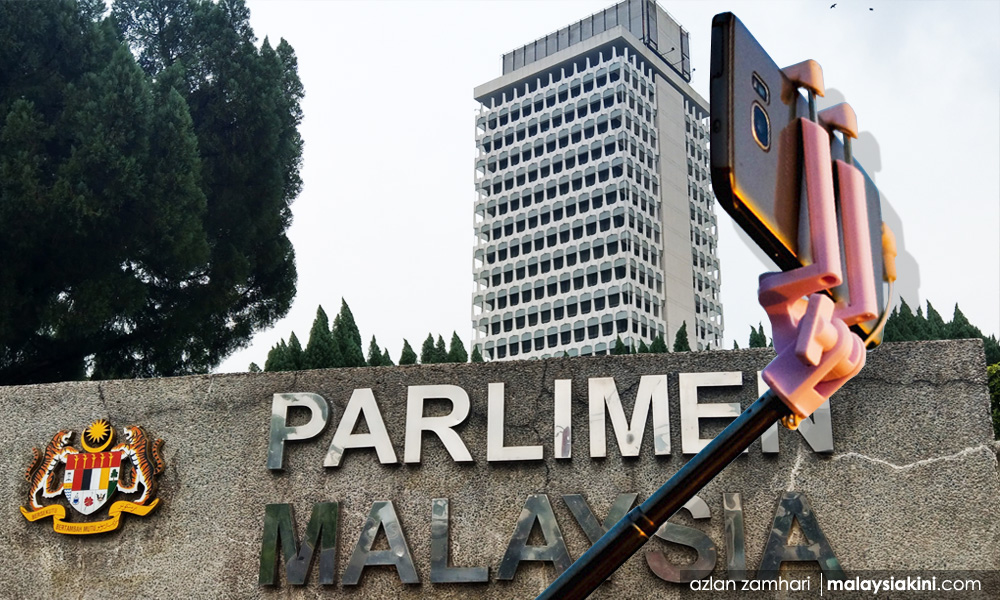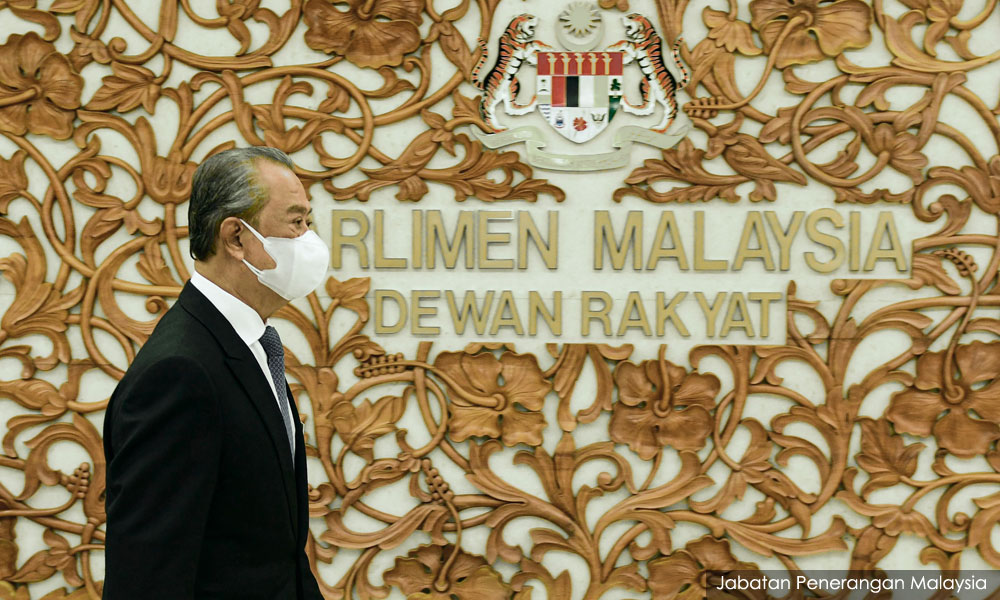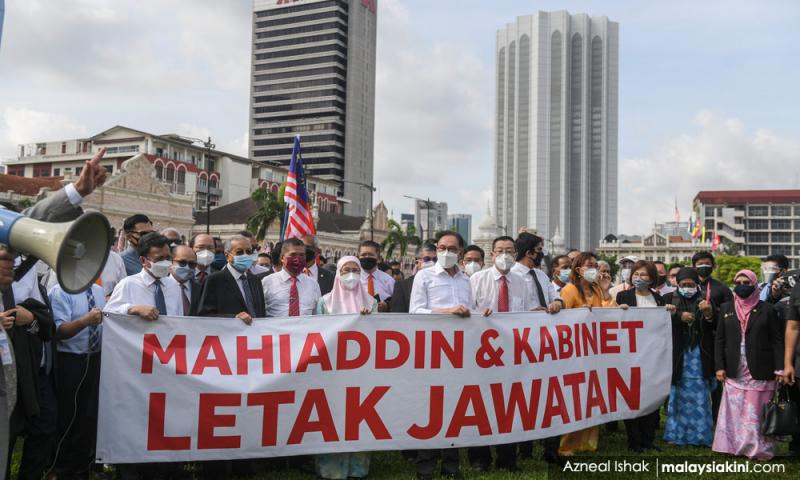MP SPEAKS | Our MPs are being held hostage
MP SPEAKS | Unless you are familiar with the odd rituals of the United Kingdom Parliament, this little piece of information may be new to you.
Did you know that a Member of Parliament (MP) is held “hostage” at Buckingham Palace for the whole duration of the Queen’s Speech and the official opening of a new Parliament session?
The hostage will only be released upon the safe return of the Queen to Buckingham Palace. This tradition goes way back when relations between the Monarch and Parliament were less friendly. These days, this practice is purely ceremonial.
Flashback to Monday, Aug 2, 2021, but not in London but in Kuala Lumpur, Malaysia. Opposition MPs were refused entry to Parliament. The road to Parliament (our Symbol of Democracy), was obstructed.
I dare say that on that “Black Monday”, democracy was unceremoniously held hostage. It would seem that the right of the MPs to exercise parliamentary democracy has been immobilised until Sept 6, 2021.
The speaker of Parliament has confirmed that the first meeting of the 4th Session of the 14th Parliament will be officiated by Yang di-Pertuan Agong on Sept 6. As is customary in the Westminster system, the Agong will read the Royal Address.
The Royal Address is prepared by the government. It outlines the government’s agenda for the coming year and reflects the legislative agenda for which the government seeks the agreement of both Houses of Parliament.

Let’s pause and think through this puzzling situation. With the government’s legitimacy in question, don’t you think that the timing of Prime Minister Muhyiddin Yassin’s call for a Vote of Confidence (VoC) is rather dubious? While this possible technical knockout is rather complex to explain, allow me to break it down in a simple scenario.
Come Sept 6, consider this hypothetical timeline:
10am: The Agong descends upon the Parliament and proceeds with the traditional procession;
10.30am: The Agong delivers his Royal Address, which contains the government’s agenda for the year in Chamber, with an audience of 220 MPs plus dignitaries.
11.30am: Commence the motion for Vote of Confidence (VoC)?
Did I miss something? Shouldn’t we settle the VoC and test the government’s legitimacy before the Royal Address? If the government fails to secure the VoC, does that mean that the Agong will have to read a new Royal Address prepared by a new government? Sounds rather ridiculous, not to mention, a waste of time and resources.
Furthermore, MPs are expected to debate and vote on the Royal Address within this sitting. Voting for the Royal Address means recognising the legitimacy of the government; and, on the other hand, voting against the Royal Address is equivalent to rejecting the King's government.
Is it possible that the government is using the Royal Address as a test of legitimacy, in lieu of a formal VoC motion? If yes, I must say, this is a rather brilliant strategy (sarcasm intended!).

Since the prime minister is ready to face a VoC motion in Parliament, why September and not earlier? If I may, let’s consider two options to expedite the process from September to August.
Option 1: Move the VoC date to before Sept 6
On Aug 4, Prime Minister Muhyiddin promised a VoC motion as a government agenda at an unspecified time during the September parliamentary session. Technically, the prime minister can call for a Special Sitting under Standing Order 11(3).
The only requirement for an urgent government agenda to be tabled in Parliament is on grounds of “Public Interest” (SO 11(3a)). The legitimacy of the government is clearly a matter of public interest that should compel the prime minister to call for a Special Meeting as soon as possible.
Option 2: Make Available an Alternative Voting Process
The Standing Order does not prescribe a process for a VoC Motion, ie. there is no written rule. Allow me to pose these questions:
a) Must the Vote of Confidence be conducted within the Parliament premises to legalise the process?
b) If an open voting or a secret ballot is required, then such act can be done before the Speaker of the House (as the adjudicator) and votes counted by the Setiausaha Dewan Rakyat (SUDR); therefore, why can’t this procedure take place as soon as possible in the Speaker’s Office, witnessed by the Chief Judge and in the presence of each political party whip?
Moving Forward
Since there is no anti-hopping law and it is against Article 10 of the Federal Constitution to prevent any MP from withdrawing support for or against the government of the day, perhaps it is high time for Malaysia to consider a Fixed Term Parliament Act, like the United Kingdom.
This should be an important agenda for the House to consider in the next sitting. For the sake of political stability and good governance, we must find sustainable solutions to preserve the honour of our Parliament and pre-empt any act of “jumping” by political frogs.
Accepting a minority government may be the last option, where the formal support of all political parties is obtained in return for negotiated policy concessions and the government’s votes of confidence, upon approval of a fair and equal Budget for all MPs with a Confidence and Supply Agreement, without entering into a full coalition government.
Perhaps, the principle of “All hands on deck” is the best compromise we can make to ensure that whatever efforts that have been made in the fight against Covid-19 cease to be compromised by political instability, and appease the appetite of all MPs.
My parting words here are these: Sometimes you have to kiss a few frogs to find your prince; Sometimes who you think is your prince is a damn frog!
AZALINA SAID OTHMAN is in her fourth term as the Penggerang MP. She is also the deputy speaker of the Dewan Rakyat.
The views expressed here are those of the author/contributor and do not necessarily represent the views of Malaysiakini.
RM12.50 / month
- Unlimited access to award-winning journalism
- Comment and share your opinions on all our articles
- Gift interesting stories to your friends
- Tax deductable
